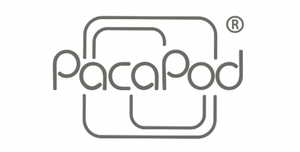
Demand Feeding VS Regular Feeding
We were really excited to sit down and discuss this latest topic with Maternity Nurse, Rachel Waddilove, for our next edition of ‘Advice from the expert’ as it is one that is hugely debated between parents all over the globe. We hope you enjoy reading Rachel’s advice, and don’t forget if you would like to get in touch with Rachel, do visit her website www.rachelsbabies.com .
Firstly, when discussing a topic like this, it is really important to remember that every parent and baby is different. What will work for some, may not work for others – some parents take a very organised approach, others prefer to be more laid back, and what is most important is that you and baby are happy.

Demand feeding is when you feed your baby whenever he or she signals that they’re hungry – this may be expressed in the form of crying or sucking on his hands. There are a few benefits to taking this approach, one of which being that you have no routine and are therefore not bound to do things at a certain time of day. Many parents can fixate too much on having to do certain activities at certain times so feeding on demand can give you more freedom to do what you like throughout the day. In addition, demand feeding is entirely baby led so you are only feeding them when he or she feels like it, as opposed to it being when you would like them to feed. It is certainly an approach that can work in the early months when you are settling into parenthood however, there can be a few downsides as you progress.
One of the less positive things about demand feeding is that it can be extremely difficult to get your baby into a day-to-day routine, as well as it being hard to understand whether your baby is crying due to hunger or general tiredness.
There will come a time in baby’s life when he or she will need to be in a routine, and this can be made harder if they have been demand feeding up until this point. It is also important to consider that demand feeding can be very straining on the mother if she is breastfeeding as it can be hard to have your own time and space if you aren’t sure when baby might need you.

If you have encountered these issues, then you may find that it is preferable to have a regular feeding routine. Introducing regular feeds from an early age can mean that your little one is much better at going to, and staying asleep as they learn that the routine of feeding, following by swaddling (if you are doing this) then ends in them going to sleep.
However you choose to feed your baby, it is paramount that you make sure both you and baby are happy and that you don’t feel pressured into doing something as parents that you do not want to do.
If you would like more in depth information about this topic, then this can be found in both Rachel’s ‘Baby Journal’ and bestselling ‘The Baby Book: How to Enjoy Year One.”




